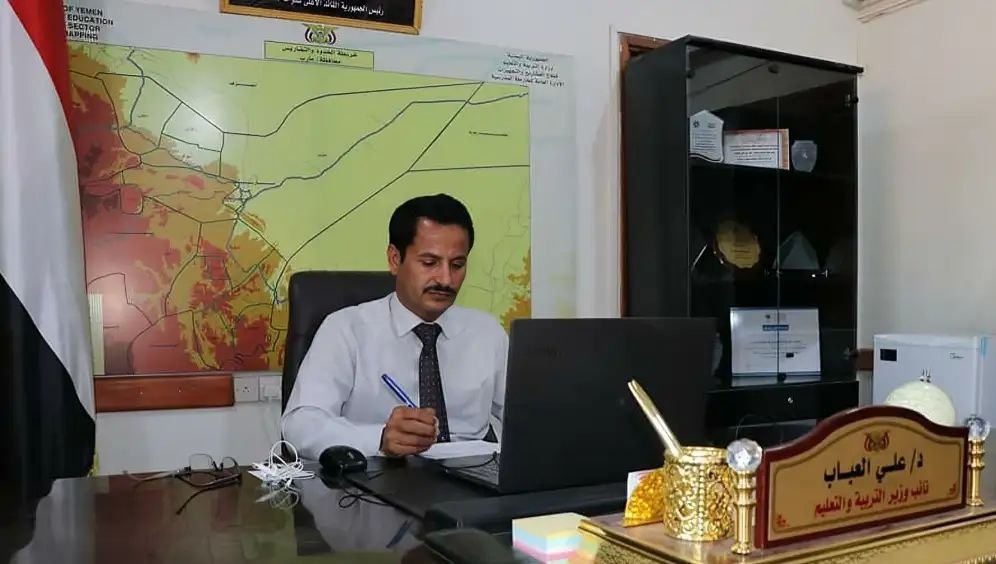


Barran Press
The Deputy Minister of Education in Yemen's internationally recognized government, Dr. Ali Al-Abab, has accused the Houthi group, designated as a terrorist organization by several countries, of deliberately undermining education and fueling sectarianism in Yemen. He expressed concern that the Houthis are using schools to promote their sectarian agenda, urging parents in Houthi-controlled areas to reject these "destructive projects."
In an interview on the Yemeni channel "Yemen Today," Al-Abab outlined a comprehensive plan to address the educational crisis in Yemen, involving collaboration with international organizations. However, he lamented that the Houthis have actively obstructed these efforts.
Al-Abab highlighted the Houthis' refusal to sign an agreement for the payment of teachers' salaries, despite a previous commitment under the Stockholm Agreement. He accused the Houthis of deliberately neglecting the educational system and transforming it into a tool for sectarian indoctrination.
He further accused the Houthis of systematically dismantling the educational infrastructure since their control of Sana'a, replacing it with a curriculum that promotes their sectarian ideology. He warned that this indoctrination, particularly among younger generations, poses a significant threat to the future of Yemen.
Al-Abab emphasized the Houthis' strategic interest in controlling education, evidenced by their appointment of the brother of the Houthi leader as the Minister of Education. He argued that this appointment reflects the Houthis' long-term goal of shaping future generations and erasing Yemen's historical memory.
The Deputy Minister highlighted the devastating impact of the Houthi-led war on education, leading to a decline in educational standards and a generation of students lacking adequate knowledge and skills. He described the Houthis as a "disaster" for Yemen, requiring significant effort to overcome their destructive legacy.
Despite the challenges, Al-Abab emphasized the Ministry's commitment to improving education quality and ensuring a brighter future for Yemeni students. He outlined ongoing discussions and collaborations with international organizations to enhance the educational system and emphasized the importance of securing funding to address the crisis.
Al-Abab highlighted the Ministry's efforts to provide teachers' salaries, even in Houthi-controlled areas, and to collaborate with international organizations to provide food and educational resources. He expressed the Ministry's determination to create a conducive learning environment to prevent student dropout rates.